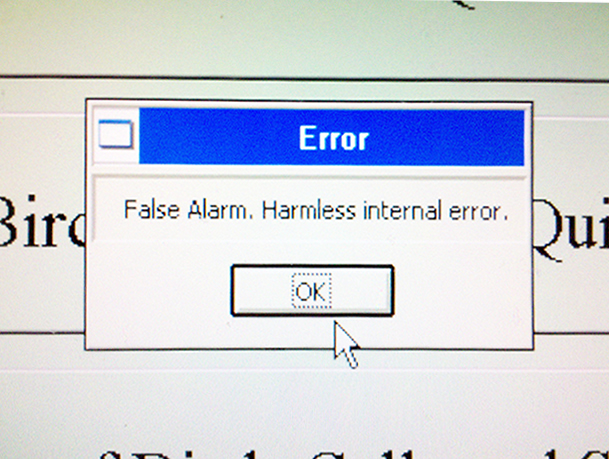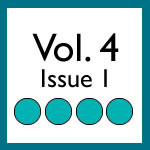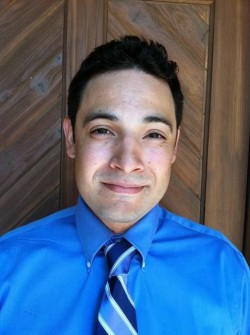Contexts of Lived Realities in SB 1070 Arizona: A Response to Asenas and Johnson’s “Economic Globalization and the ‘Given Situation’”
Arizona matters to us. Arizona is what Jacqueline Jones Royster would call our “home place.”1 We studied together at the University of Arizona during the passing of SB 1070, which legalized racially profiling Latin@s “reasonably suspected” of being undocumented, and HB 2281, which outlawed Mexican American Studies in Tucson Unified School District. Because of our research and Arizona ties, we are responding to the recent Present Tense article, “Economic Globalization and the ‘Given Situation’: Jan Brewer’s Use of SB 1070 as an Effective Rhetorical Response to the Politics of Immigration” by Jennifer J. Asenas and Kevin A. Johnson. Our purpose is to problematize, complicate, and personalize the discussion presented by Asenas and Johnson. We feel that the article would have benefitted significantly from critical inquiry that engaged with the situation on the human level as well as taking into consideration the history of Arizona as the ‘given situation.’ As a demonstration of a methodology based on lived experiences, we also provide a counternarrative to further emphasize ethical considerations that were overlooked by Asenas and Johnson’s use of logocentric strategies to discuss the dehumanizing policy of SB 1070.
Although Asenas and Johnson’s argument engages policy that connects the macro-context of global economics, we believe a more biting critique of SB 1070 is required due to the micro-context of the lived experiences of the people framed by this ultraconservative rhetoric reified into law. Asenas and Johnson explain that “the purpose of this article is to assess how Governor Brewer used SB 1070 as a rhetorical response to generate and maintain political support for her constituents, state industries, and wealthy contributors.” On its surface, the application of Aristotle’s definition of rhetoric to the contemporary controversy surrounding SB 1070 only seems to rearticulate without complicating or extending Karl Marx’s arguments about the relationship between the political superstructure and the economic base to reproduce the conditions for production. By focusing specifically on rhetorical strategies for fluctuating poles or ego-driven concerns of “political popularity,” the authors miss an important opportunity to consider the human experience and civic action that makes democracy possible.
Asenas and Johnson focus on Brewer’s popularity resulting from rhetorically pandering to businesses that include “state industries”; however, we argue that the efficacy of Brewer’s decision was as short-lived as it was inhumane and shortsighted. Reporting on the backlash to SB 1070, the New York Times’ Marc Lacey noted, “musicians canceled Arizona concerts, tourists canceled Arizona vacations and convention organizers bypassed Arizona in favor of less politically toxic states.” The success of the Arizona boycott affected hotel and convention business, resulting in Arizona business leaders urging state lawmakers to back off future immigration legislation (Lacey). Although Asenas and Johnson pinpoint their argument on transnational businesses, we would also point out the hotel and music industries identified in the Times article are neither uniquely local to Arizona, nor exclusive to U.S. ownership.
While the purpose of Asenas and Johnson’s article is to evaluate a piece of legislation as a response in a “given situation” to global economics, there is much more to this context than Governor Brewer’s political popularity. Asenas and Johnson acknowledge the crucial importance of context, yet the discussion moves quickly from the local to the abstract. We, however, advocate for a needed awareness and focus on the criminalizing of brown and black bodies within the borderlands.2 Asenas and Johnson explain that the “given situation [context] of state and national politicians is one in which the influence of economic globalizations on campaigning, political popularity, and economic policy is pervasive.” Context as central to a political situation is briefly addressed within the Aristotelian definition of rhetoric: “Working from Aristotle’s definition of rhetoric … we believe that Governor Brewer’s given situation should not be limited to Arizona’s political situation.” Although the purpose of “Economic Globalization and the ‘Given Situation’” is to analyze the rhetorical efficacy of a senate bill vis-à-vis global economics, we argue that more attention needs to be paid to the “given situation” of Arizona’s history and culture.
In Present Tense’s second issue, Victor Villanueva3 makes a point about the interplay between politics and economics and attends to Arizona and its tradition of scapegoating people of color. Villanueva draws attention to the racial component of Arizona’s political history: “Arizona’s bid for statehood at the turn of nineteenth to the twentieth century had been denied several times on the basis of its Mexican population.” Additionally, Villanueva addresses the more contemporary failure of Arizona to acknowledge Dr. Martin Luther King Jr. Day with the Super Bowl pulling out of Arizona as a result, as well as the state passing an English-only law in 1995. Asenas and Johnson’s focus on the logic of Brewer’s decision-making during the passage of SB 1070 fails to account for the ethics related to a historical trajectory of racial discrimination, in which this particular situation is merely a moment.
We appreciate that Asenas and Johnson explain the connection between Corrections Corporation of America (CCA) and Jan Brewer’s campaign. This connection possesses the potential for problematizing the prison industrial complex and militarizing police enforcement, yet their argument instead focuses on the logic of appealing for donations from CCA: “increasing the number of detained undocumented immigrants is big business, and the CCA stood to benefit from SB 1070.” We are concerned that there is no critique—or acknowledgement—of the dehumanizing assumption that economic interests justify instituting what amounts to Jim Crow style laws that institutionalize second-class citizenship for non-whites.4 This is especially important because of the dehumanizing reality that Arizona’s policy undergirds. Arizona’s ultraconservative political culture is one that authorizes abuses of power such as the over-enforcement of undocumented people by the re-elected Maricopa County (Phoenix area) Sheriff Joe “America’s Toughest Cop” Arpaio.5
Returning to Royster’s criticism that the experiences of friends have been carelessly mishandled,6 we draw attention to our colleague Dr. Ersula Ore, Assistant Professor of Rhetoric and Composition at Arizona State University, who was stopped and forcibly arrested by ASU Police Officer Stewart Ferrin. On a street with construction on one end and no cross-traffic, Dr. Ore was singled out by Officer Ferrin in the middle of the street at night among the semi-regular foot traffic. When Dr. Ore asked why she was being stopped and did not produce identification when Officer Ferrin ignored her initial inquiry, he violently threw her across the hood of his patrol car and pinned her down with her skirt forced up, exposed to on-lookers. It is heartbreaking that a white police officer would feel justified in escalating a jaywalking stop to a physical violation of an African American professor, but the history and culture of white supremacy that dominate the mythos of the Southwest7 reveal this as a reality to people of color through lived experience. We understand it can be difficult to write rhetorical scholarship about a policy that affects the material lives of many, so we suggest scholarship from the emerging body of knowledge on post-SB 1070 Arizona. For example, Cruz’s recent book8 engages both SB 1070 and House Bill 2281 through the analytical lens of pop culture, which in itself could seem to diminish the severity of these issues. However, Cruz and others devoting scholarly attention to these policies address the human level through autobiographical connections, ethnography, observation, or interaction with the people affected by these policies (Acosta 2014; Ribero 2013; Serna 2013a, 2013b; Villanueva 2011). When Asenas and Johnson mention the nameless, faceless examples of hotel workers and food preparers targeted by SB 1070 they confuse cliché for experience:
For example, a multinational hotel chain might host a meeting for a group of US and non-US investors strategizing the expansion of their business in Arizona whose rooms are cleaned by and meals prepared and served by undocumented immigrants. While the meeting would bring business to Arizona, not all of the money spent would benefit or employ the citizens of that state. (2)
This hypothetical example of undocumented hotel workers only serves to mimic—even if unconsciously—the tired rhetoric of “they’re stealing our jobs,” rather than critically evaluating it and its material effects. Our concern is that audiences who read these hypothetical examples uncritically may follow the logic without recognizing the embedded assumptions in the stereotypical representation.
Beyond the hypothetical, and as an illustration of policy-driven actions and lived realities of people of color in Arizona, we advocate for employing a narrative methodology that can counter dominant methods that dismiss or decenter racism and the lives affected daily by it.9 As Aja has argued in previous scholarship,10 counterstory functions as a method for marginalized people to intervene in research methods that would form master narratives based on ignorance and on assumptions about minoritized peoples like Chican@s. As an example of research that draws from personal experience, we offer Aja’s humanizing counternarrative for consideration:
It’s 6:30AM, still dark outside, with a winter chill in the desert air. As I turn the ignition switch to my dad’s sleek Mercedes E class, I increase the heat to a cozy 76, and my dad, in the passenger seat teases, “What you’re cold? I thought those upstate New York winters made you tough. A badass.” I laugh and rub my eyes, sleepy. It’s the holidays and I’m in Arizona, my borderlands home of 30 years. Working as an assistant professor, I now live in the northeast and I’ve missed my southwest home. I’ve romanticized it, written about it, and taught about its incendiary policies on immigration and ethnic studies to my mostly horrified and unknowing New York City and Long Island students. From that safe distance I’ve critiqued the seemingly endless affronts by the Arizona legislature toward its populace and I’ve grown more sensitive to, yet less experienced, in the everyday effects of living in this space.
As I round the curved roads near the San Xavier Mission, my dad says, “Rides real smooth, huh?” He’s referring to his new Mercedes, a car he worked hard his whole life to buy, a car he is proud of and that he wants me to drive so I can share in his accomplishment. My dad was born in Nogales, Arizona and grew up in a south-side Tucson barrio, one of ten siblings. His mother was born in the cotton fields of Buckeye, Arizona to a family of migrant farm workers; his father was Mexican from Sonora but became a US citizen in the 1990s. After serving in the US Marine Corps during Vietnam, my father earned two associates degrees in digital electronics and business management and went directly to work as an electronic technician for a local defense contractor. He has spent more than thirty years working alongside and training recent graduates with BAs in engineering to do a job he knows by experience and heart, but can’t officially perform due to his lack of a four-year degree. For more than thirty years, my dad has supported my academic pursuits—acutely aware of the second-class citizenship his community college degrees have afforded him. He has steadily worked to provide his family with a comfortable life and opportunities. So, on this winter morning, with his daughter the PhD and professor, driving him to work in a car he’s worked a lifetime to afford, he’s proud.
As I make the left-hand turn onto the company facility site, I fumble with my wallet and New York driver’s license. From years of dropping off my dad, I know that ID is required for entry. I am prepared for the usual exchange with the guard:
Guard: Where you headed?
Me: Building 501
Guard: You know the way?
Me: Yes, thank you.
Guard: Have a nice day.
However, this guard, a young rosy-cheeked white male, mid-to-late 20s, wearing a guard’s coat and skull cap against the chilly morning air, says instead: “Are you two US citizens?”
At first my dad and I laugh, both out of surprise, and I think because we really did believe the guard was telling a joke. But the guard does not laugh. He does not crack a smile. “Oh God, he’s serious,” I realize. As my stomach drops, I look to my dad in the passenger seat and his face is confused and defiant. Like I had my New York ID extended toward the guard, my dad has his company badge held out in plain sight. You see, because this company is a national defense contractor, you must be a citizen to be hired. You must be a citizen to hold a badge.
Embarrassed and flustered, I answer, “Yes, we’re citizens.” The guard looks at my dad, who says in an annoyed tone, “Yes, I’m a citizen.” The guard holds our gazes for a few moments more and I hold my breath. He finally says, “Okay, have a nice day.” He waves us through and I exhale.
“What an asshole,” my dad mutters.
As I drove back toward my parents’ home, I wracked my brain for answers to this experience. Being that it was so early in the morning, I noted that I was still in my pajamas, with my hair, a frizzy tangled mess, tied into a quick ponytail. Was that why? I thought about my dad’s Mercedes, my NY ID, my dad’s badge, and his dismissive “asshole” response about the guard. When and how did this security gate become a border checkpoint? What was it about me that prompted this question? Why do I feel so ashamed? Why was my dad so numb?
From this experience I’ve come to terms with a few things:
- The lived experience of people of color in the borderlands of Arizona is always subject to scrutiny regarding their legality in the land. So much so, that people like my Mexican American father become numb and desensitized to the continual assaults on their humanity under this legislation.
- Because I have moved away to a space where my legal status is not constantly surveilled and of reasonable suspicion, I am privileged. Being questioned is not my everyday lived reality as it is for my family, friends, and countless other people of color in AZ.
- In a state like Arizona, my titles, degrees or even the car I drive do not matter when my brown skin is of enough reasonable suspicion to the law.
- Because I teach about, critique, and engage in conversations about Arizona legislation such as SB1070 and HB2281, I must remember, even if this is through painful and humiliating personal assaults, that I have a responsibility to always consider and include the discussion of human life affected under this jurisdiction.
Although we both write from outside Arizona and its systemic inequality, we write out of love for our family and friends who feel the daily reverberations of political theater and quarterly earnings reports that support the rejection of culture, history, knowledge, and decades of work loyalty. We aim to create a dialogue about our work and the responsibility that we believe rhetorical teacher-scholars must insert as ethical considerations into public discourse that concerns economic policies diminishing the value of human life. Our goal is not to lay claim to, or knowledge of (nor to seek an apology for) Asenas and Johnson’s intent in their essay’s analysis. We seek only to raise the awareness of the realities facing our “home place” of Arizona, so that both authors and the audience of their article will further consider the complex dimensions of personal experience, race, and colonialism endemic to this given situation. Beyond politics and economics, and above all, human lives matter to our work.
Endnotes
- In “When the First Voice You Hear is Not Your Own,” Royster explains her disbelief at the level of disrespect that has happened in research about people of color: “when you visit other people’s ‘home places,’ especially when you have not been invited, you simply can not go tramping around the house like you own the place, no matter how smart you are, or how much imagination you can muster, or how much authority and entitlement outside the home you may be privileged to hold” (32). return
- See Samuel Huntington’s fear-based essay concerning his perceived risks to national identity due to our increasing Latin@ population: “The Hispanic Challenge” http://foreignpolicy.com/2009/10/28/the-hispanic-challenge/. return
- “Of Ideologies, Economies, and Cultures: Three Meditations on the Arizona Border.” return
- Laws such as SB 1070 provide a highly subjective “probable cause” for an already over-militarized law enforcement, as we have seen in Maricopa County’s Sheriff Joe Arpaio’s racial profiling and over-enforcement outside of his jurisdiction of suspected undocumented persons (Hesson). return
- Sherriff Arpaio is known for his immigration raids and tent city prison that has received Human Rights criticism and federal crackdowns on his racial-profiling (Hesson). return
- With regard to how news organizations have covered Dr. Ore’s case, we find Royster’s assertion fitting: “I have found it extremely difficult to allow the voices and experiences of people that I care about deeply to be taken and handled so carelessly and without accountability by strangers” (31). The representations of Dr. Ore in media reports following her arrest repeatedly use the photo from her mug-shot, as opposed to the more flattering images of the police officer. The message communicated by her arrest photo support the dominant narrative perpetuated about Dr. Ore, portraying her as the one at fault. As with all messages, the narrative of Arizona media is shaped by the expectations of its ultraconservative Arizona audience. return
- Though outsiders may argue that Officer Ferrin’s termination did not come as a result or prove his racially motivated abuse of Dr. Ore, our relationship with Dr. Ore and our experiences in Arizona teach us otherwise. return
- Reclaiming Poch@ Pop: Examining the Rhetoric of Cultural Deficiency. return
- Counterstory as a research method comes out of Critical Race Theory. Scholars such as Derrick Bell examined the intersections of law, race, and power with knowledge derived from lived experience as a guiding principle. return
- See Martinez’s “A Plea for Critical Race Theory Counterstory: Stock Story versus Counterstory Dialogues Concerning Alejandra’s ‘Fit’ in the Academy.” return
Works Cited
- Acosta, Curtis. “Huitzilopochtli: The Will and Resiliency of Tucson Youth to Keep Mexican American Studies Alive.” Multicultural Perspectives 16.1 (2014): 3-7. Print.
- Asenas, Jennifer J. and Johnson, Kevin A. “Economic Globalization and the “Given Situation”: Jan Brewer’s Use of SB 1070 as an Effective Rhetorical Response to the Politics of Immigration.” Present Tense 4.1 (2014): n. pag. Web. 5 Nov 2014.
- Hesson, Ted. “Judge Says Sheriff Joe Arpaio Racially Profiled Latinos.” ABC News Internet Ventures. 24 May 2013. Web. 1 Dec. 2014.
- Lacey, Marc. “Immigration Advocates Split Over Arizona Boycott.” New York Times. 14 Sept. 2011. Web. 13 Jan. 2015.
- Levine, Sam. “Rand Paul Thinks Taxes Are Partly to Blame for Eric Garner’s Death.” Huff Post: Politics. Huffington Post, 3 Dec. 2014. Web. 10 Dec. 2014.
- Lorde, Audre. “The Master’s Tools Will Not Dismantle the Master’s House.” Sister Outsider 110 (1984): 81-102. Print.
- Martinez, Aja Y. “A Plea for Critical Race Theory Counterstory: Stock Story versus Counterstory Dialogues Concerning Alejandra’s ‘Fit’ in the Academy.” Composition Studies 42.2 (2014): 33-55. Print.
- —. “Critical Race Theory Counterstory as Allegory: A Rhetorical Trope to Raise Awareness About Arizona’s Ban on Ethnic Studies.” Across the Disciplines. Fall (2013). 26pp. 12 Dec 2014.
- Marx, Karl. A Contribution to the Critique of Political Economy. No. 1. International Library Publishing Company; London, Kegan Paul, Trench Trubner, Limited, 1904. Print.
- Medina, Cruz. “Nuestros Refranes: Culturally Relevant Writing in Tucson High Schools.” Reflections: A Journal of Public Rhetoric, Civic Writing, and Service Learning 12.3 (2013): 52-79. Print.
- —. Reclaiming Poch@ Pop: Examining the Rhetoric of Cultural Deficiency (Latino Pop Culture Series). New York: Palgrave Macmillan, 2015. Print.
- Neel, Jasper P. Aristotle’s Voice: Rhetoric, Theory, and Writing in America. SIU Press, 1994. Print.
- Ribero, Ana Milena. “‘In Lak’Ech (You Are My Other Me):’ Mestizaje as a Rhetorical Tool that Achieves Identification and Consubstantiality.” Arizona Journal of Interdisciplinary Studies 2 (2013): 22-41. Print.
- Royster, Jacqueline Jones. “When the First Voice you Hear is Not Your Own.” College Composition and Communication (1996): 29-40. Print.
- Serna, Elias. “The Eagle Meets the Seagull: The Critical, Kairotic and Public Rhetoric of Raza Studies Now in Los Angeles.” Reflections: A Journal of Public Rhetoric, Civic Writing, and Service Learning 12.3 (2013a): 80-93. Print.
- —. “Tempest, Arizona: Criminal Epistemologies and the Rhetorical Possibilities of Raza Studies.” The Urban Review 45.1 (2013b): 41-57.
- Van Dijk, Teun. Elite Discourse and Racism. Newbury Park: Sage P, 1993. Print.
- Villanueva, Victor. “Of Ideologies, Economies, and Cultures: Three Meditations on the Arizona Border.” Present Tense 1.2 (2011): n. pag. Web. 2 Dec 2014




 Cruz Medina is Assistant Professor of English at Santa Clara University and a member of the NCTE/CCCC Latin@ Caucus, having earned his PhD at the University of Arizona. His book Reclaiming Poch@ Pop: Examining the Rhetoric of Cultural Deficiency (Palgrave 2015) analyzes the pop culture of Latin@ artists responding to SB 1070 and HB 2281. His writing has appeared in College Composition and Communication, Reflections: a Journal of Public Rhetoric, Civic Writing and Service Learning, and other publications.
Cruz Medina is Assistant Professor of English at Santa Clara University and a member of the NCTE/CCCC Latin@ Caucus, having earned his PhD at the University of Arizona. His book Reclaiming Poch@ Pop: Examining the Rhetoric of Cultural Deficiency (Palgrave 2015) analyzes the pop culture of Latin@ artists responding to SB 1070 and HB 2281. His writing has appeared in College Composition and Communication, Reflections: a Journal of Public Rhetoric, Civic Writing and Service Learning, and other publications.  Aja Y. Martinez is Assistant Professor of English at Binghamton University, SUNY in New York and a member of the NCTE/CCCC Latin@ Caucus. Her scholarship published both nationally and internationally, focuses on the rhetoric of racism and its effects on marginalized peoples in institutional spaces. Her efforts as teacher-scholar strive towards increasing access, retention and participation of diverse groups in higher education. Her writing has appeared in College English, Composition Studies, Across the Disciplines, and other publications.
Aja Y. Martinez is Assistant Professor of English at Binghamton University, SUNY in New York and a member of the NCTE/CCCC Latin@ Caucus. Her scholarship published both nationally and internationally, focuses on the rhetoric of racism and its effects on marginalized peoples in institutional spaces. Her efforts as teacher-scholar strive towards increasing access, retention and participation of diverse groups in higher education. Her writing has appeared in College English, Composition Studies, Across the Disciplines, and other publications.